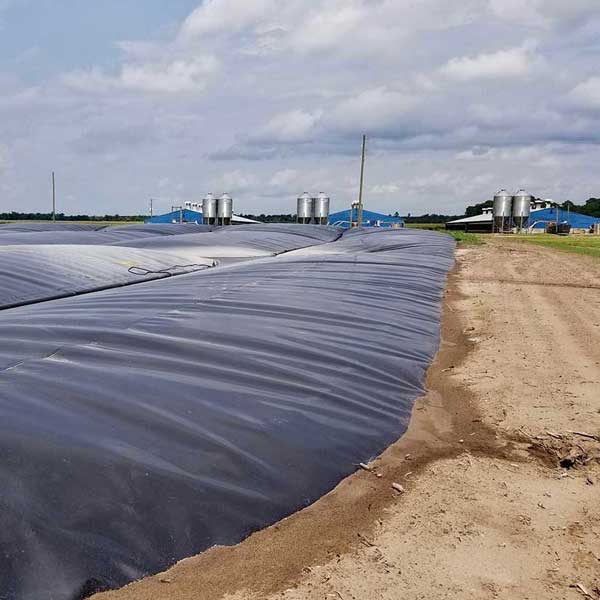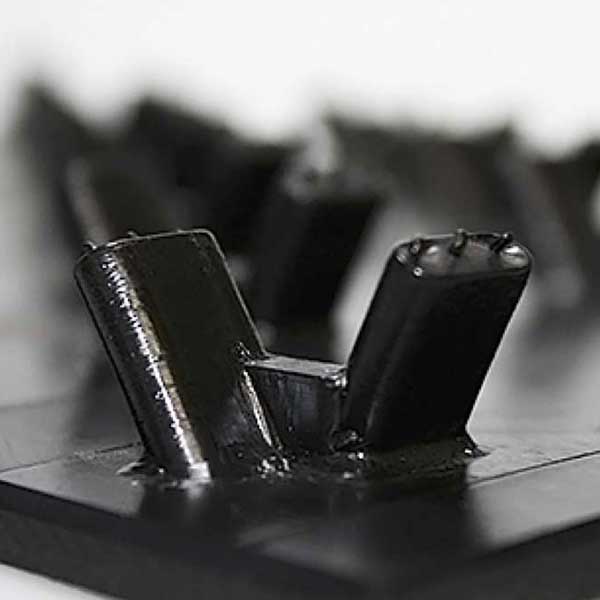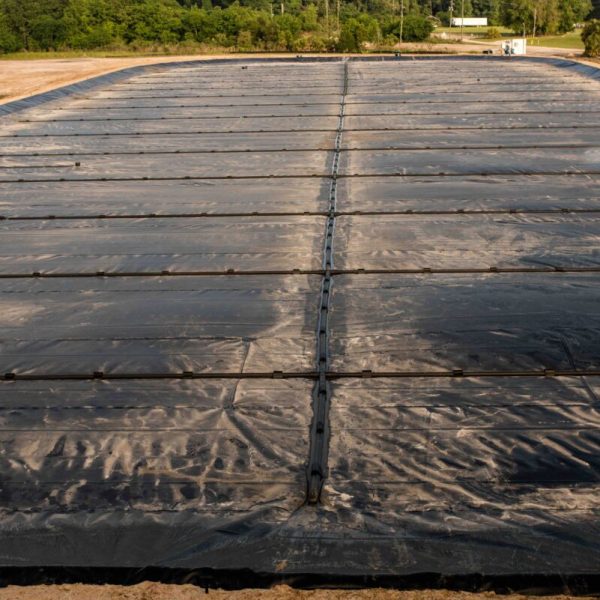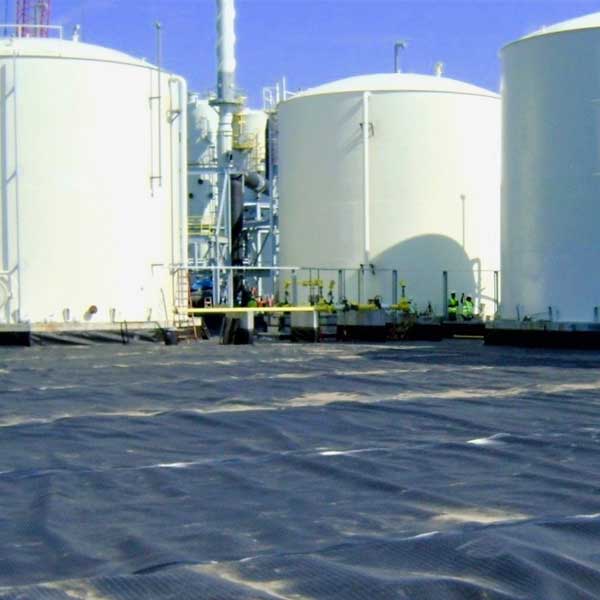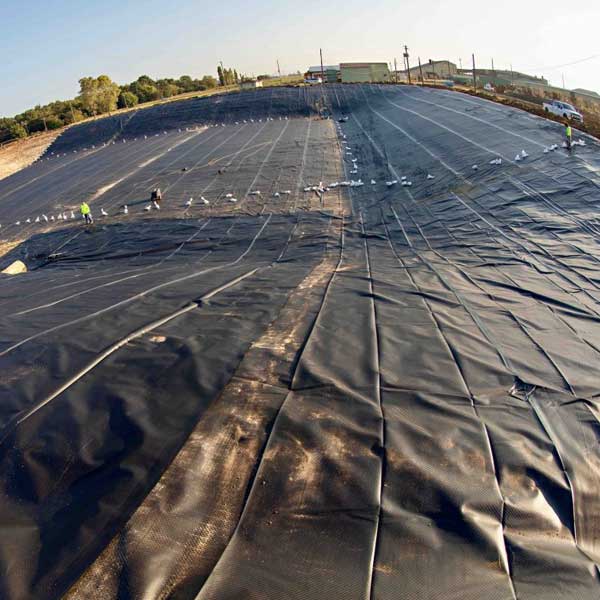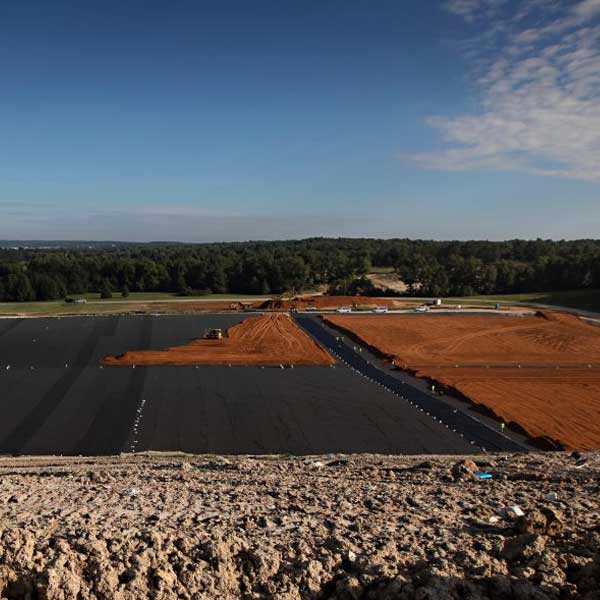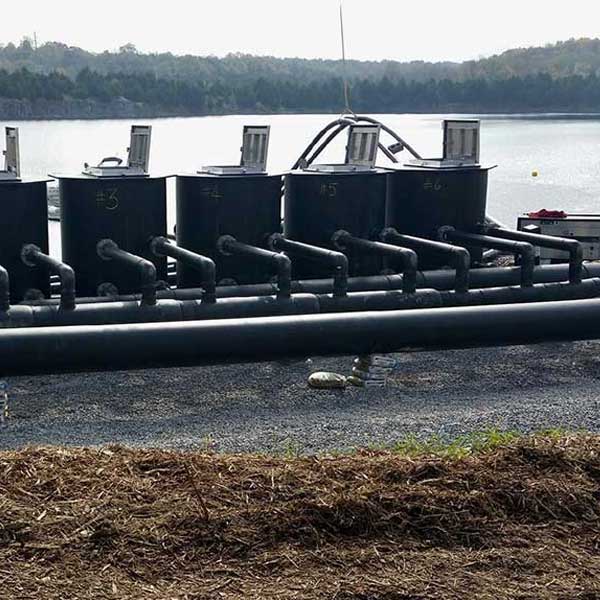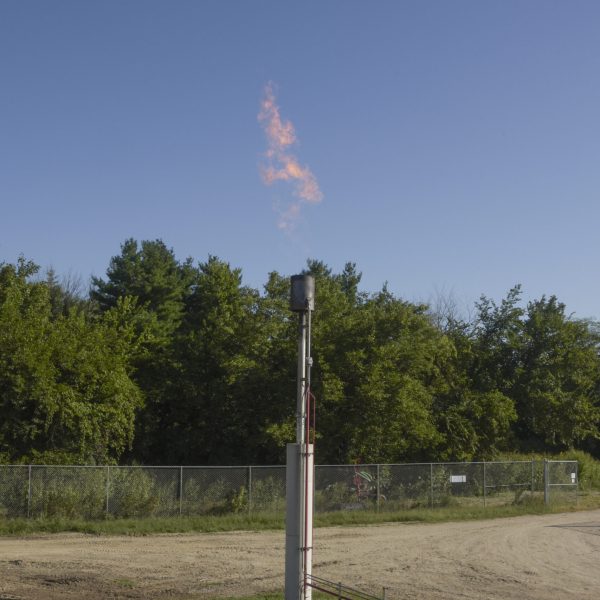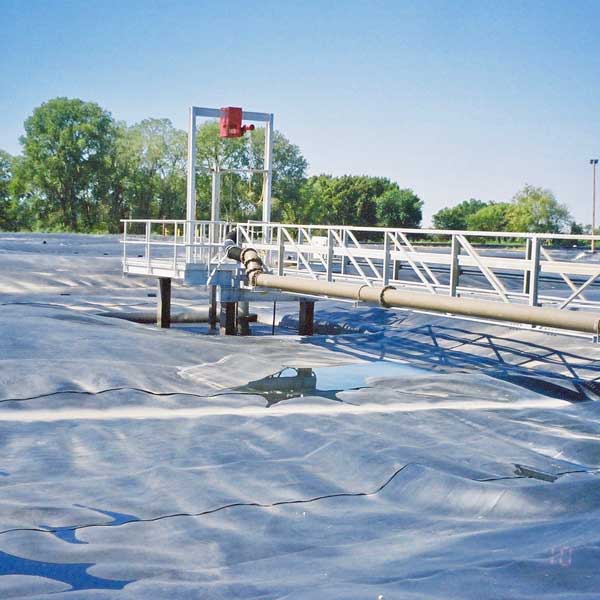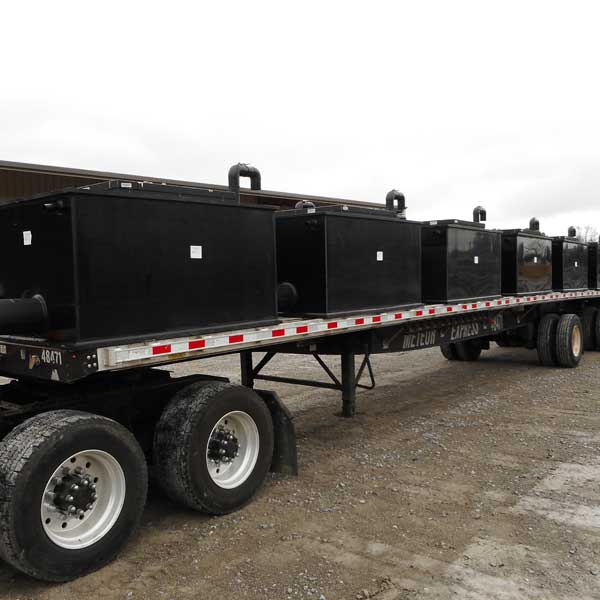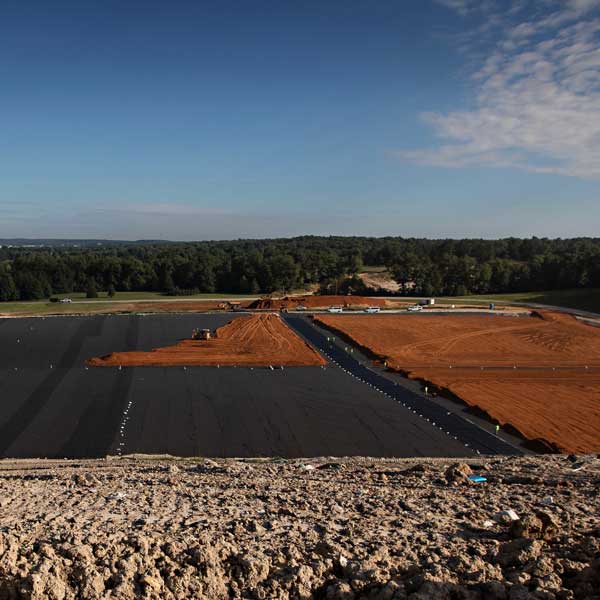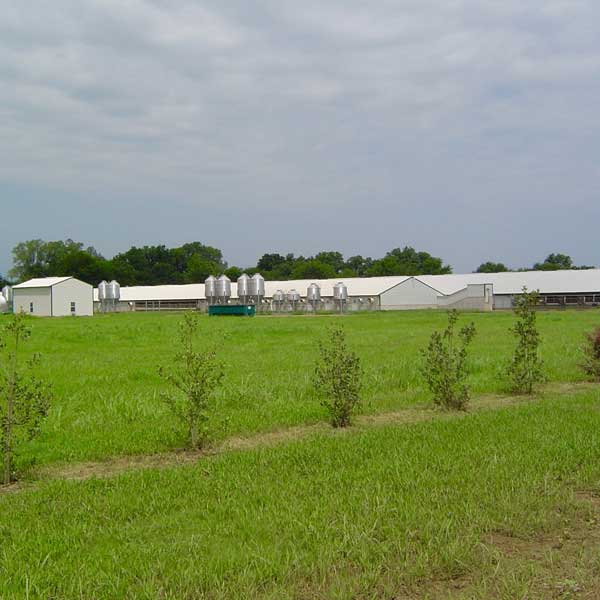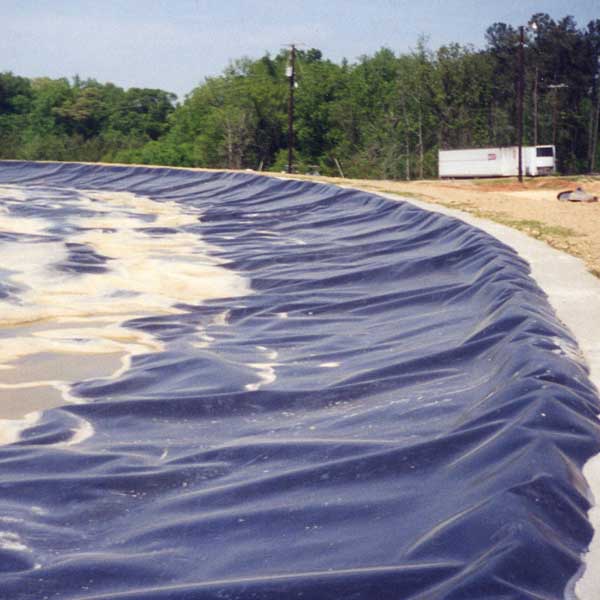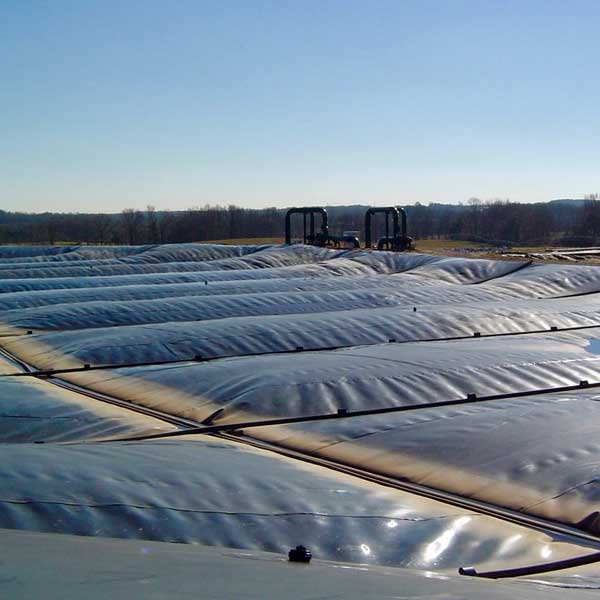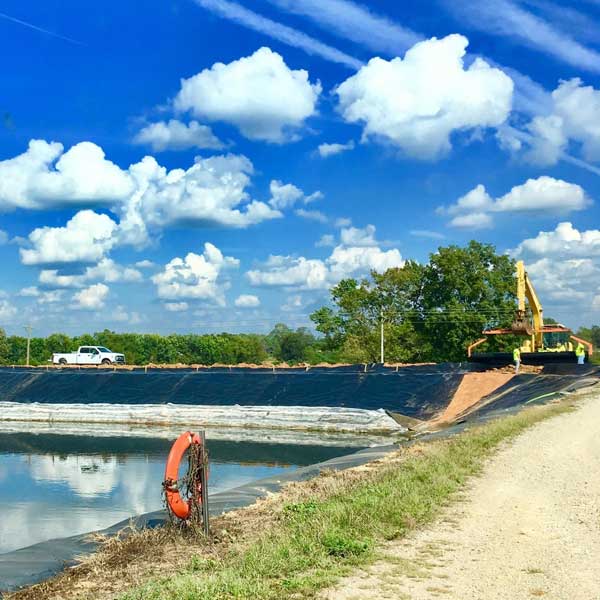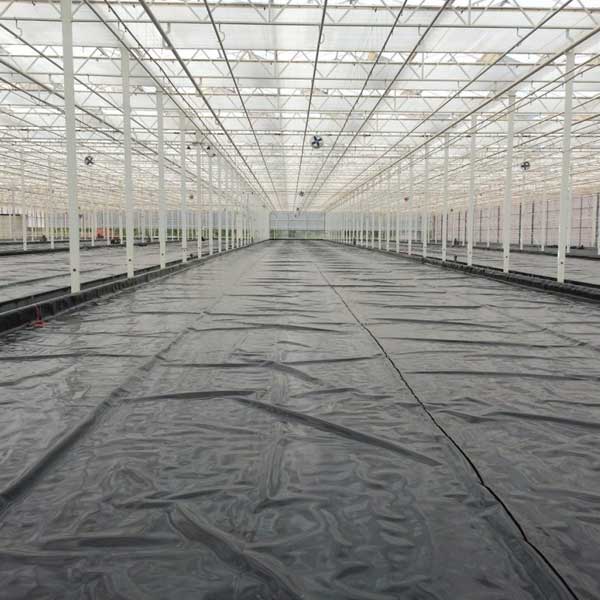Biogas Equipment Fabrication
Plastic Fusion is the leading provider of Biogas Equipment Fabrication manufacturing specialized systems used to utilize biogas.


















Concrete Protective Liners
Plastic Fusion is a leader in the installation of concrete protective liners in industrial tanks and storage facilities, wastewater treatment tanks, and chemical processing plants.
Liner Systems
Plastic Fusion has been installing geosynthetic containment systems for more than 40 years.
Piping Systems
Our custom fabricated piping systems meet even the toughest handling requirements. Materials offer long-term chemical resistance and environmental containment.
Anaerobic Digester Covers
We design and install HDPE cover systems for anaerobic digesters and are a pioneer in anaerobic digester lagoons for biogas collection and conversion to Renewable Natural Gas (RNG).
Biogas Equipment Fabrication
Biogas equipment fabrication involves the design and manufacture of specialized machinery and systems used to produce, treat, and utilize biogas—a renewable energy source derived from the anaerobic digestion of organic materials. This equipment includes digesters, gas storage tanks, treatment systems, and energy conversion devices such as combined heat and power (CHP) units. Fabrication requires a deep understanding of the chemical processes involved in biogas production as well as the mechanical and environmental challenges associated with its use.

Read more
What is Biogas Equipment Fabrication?
Biogas equipment fabrication involves the design, manufacturing, and assembly of specialized machinery and components used in biogas production systems. This includes digesters, gas storage tanks, piping systems, and biogas purification units. High-quality fabrication ensures that the equipment operates efficiently, safely, and reliably.How Does Biogas Equipment Fabrication Work?
Biogas equipment fabrication begins with the design phase, where engineers and designers create detailed plans for the machinery based on the specific needs of the biogas production system. These plans are then used to manufacture the components, which are assembled and tested to ensure they meet the required standards. Fabrication involves cutting, welding, machining, and assembling various materials, typically metals and high-strength polymers, to create durable and efficient equipment.What Materials are Used in Biogas Equipment Fabrication?
Biogas equipment is typically fabricated from durable materials such as stainless steel, carbon steel, and high-density polyethylene (HDPE). These materials are chosen for their resistance to corrosion, chemical reactions, and the harsh conditions often present in biogas production environments. The selection of materials ensures the longevity and reliability of the equipment.What are the Benefits of Using Custom-Fabricated Biogas Equipment?
- Tailored Solutions: Custom fabrication allows for the creation of equipment that meets the specific requirements of a biogas production system, ensuring optimal performance.
- Enhanced Efficiency: Well-designed and fabricated equipment can improve the efficiency of biogas production, leading to higher yields and better resource utilization.
- Durability and Reliability: High-quality materials and precision fabrication result in equipment that is durable and reliable, reducing maintenance costs and downtime.
- Safety: Custom-fabricated equipment is designed to meet stringent safety standards, minimizing the risk of accidents and ensuring safe operation.
- Environmental Compliance: Properly fabricated equipment ensures that the biogas production process meets environmental regulations and standards, reducing the risk of penalties and improving sustainability.
How to Implement Biogas Equipment Fabrication?
Implementing biogas equipment fabrication involves several key steps:- Needs Assessment: Evaluate the specific requirements of the biogas production system, including capacity, feedstock type, and site conditions.
- Design and Engineering: Work with engineers to design equipment that meets the identified needs, ensuring compliance with industry standards and regulations.
- Material Selection: Choose high-quality materials that offer durability, corrosion resistance, and suitability for the biogas production environment.
- Fabrication: Manufacture the equipment components using precise cutting, welding, and machining techniques.
- Assembly and Testing: Assemble the components and conduct thorough testing to ensure the equipment meets performance and safety standards.
- Installation and Commissioning: Install the fabricated equipment at the production site and conduct commissioning tests to ensure it operates efficiently and effectively.
What Maintenance is Required for Fabricated Biogas Equipment?
Maintenance of fabricated biogas equipment includes regular inspections, cleaning, and servicing all components. Key maintenance tasks involve:- Checking for Corrosion and Wear: Regularly inspect equipment for signs of corrosion, wear, or damage and address any issues promptly.
- Lubrication and Servicing: Ensure moving parts are properly lubricated and serviced to maintain smooth operation.
- Seal and Gasket Inspection: Check seals and gaskets for leaks or deterioration and replace them as necessary.
- Calibration and Testing: Periodically calibrate sensors and control systems to ensure accurate measurements and efficient operation.

